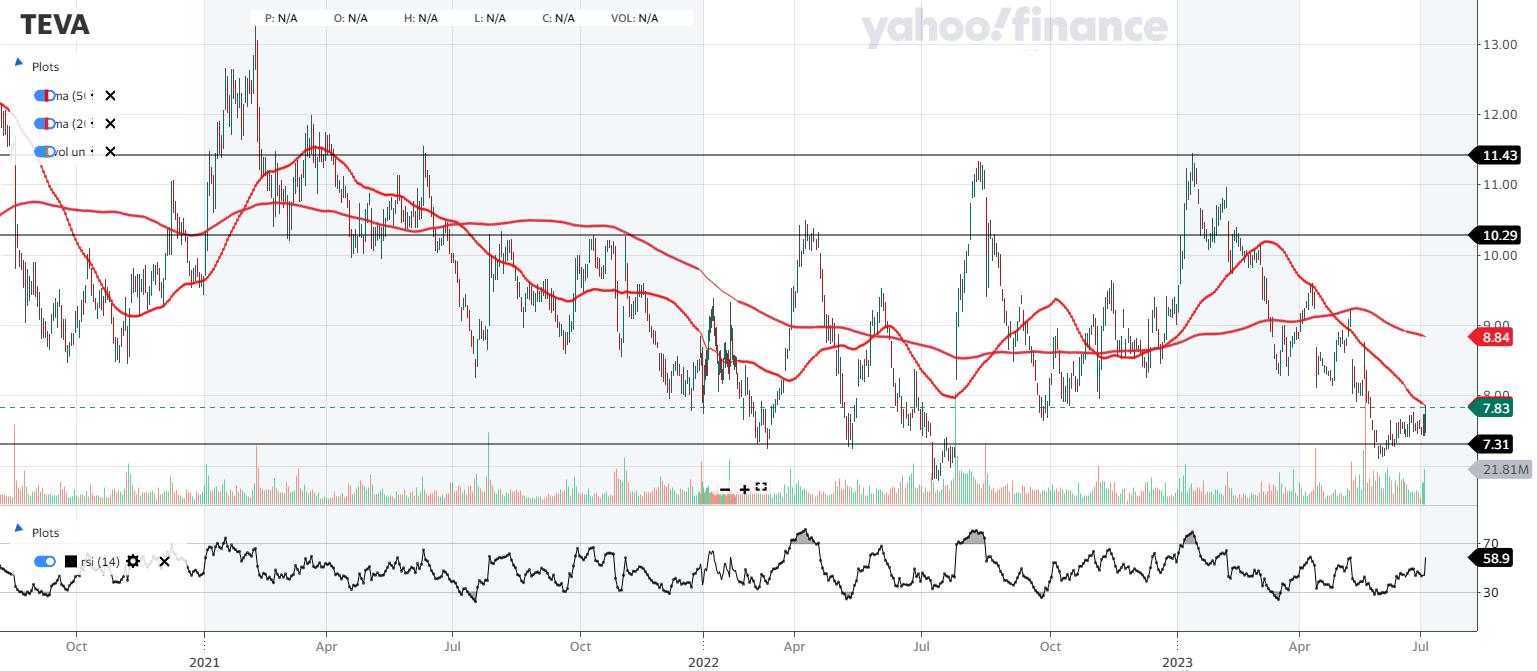Teva Pharmaceuticals

Fundamental analysis
Teva (Hebrew for Nature) is an Israeli multinational pharmaceutical company focused on the production of generic drugs (drugs that have expired patents and are free to be produced by any company with the same active ingredient). It was founded in 1901 in Jerusalem. Its headquarters are in Tel Aviv. The company is traded on the Israeli and American stock exchanges (NYSE – ticker TEVA).
The company operates in three markets: the US, Europe and the international market.
The company’s revenues have been declining for a long time, falling from $18.27 billion in 2018 to $14.92 billion in 2022. On the other hand, Teva has also been able to pay down its debt. In 2017, it had $34 billion in debt, and in Q1 2023 it only had $18.5 billion.Globally, revenues in the pharmaceutical sector have been growing steadily since 2001, reaching US$1,482 billion in 2022, but sales of COVID drugs have been a big part of that.19 From 2023 onwards, sales of other drugs also seem to be increasing as patients return to doctors with other ailments, not just COVID.19
Teva has a new CEO as of January this year. Mr Richard Francis. With his arrival, a new strategy for the next few years is likely to be announced this year. It will focus on the expected cost reduction and production optimization.
The company is currently in loss for the last 5 years. But some analysts expect a return to profit in the next three years.
The company’s PE is 0.6 and the market average is 1.4.
Teva is a relatively cheap stock, currently trading for about $7 apiece.